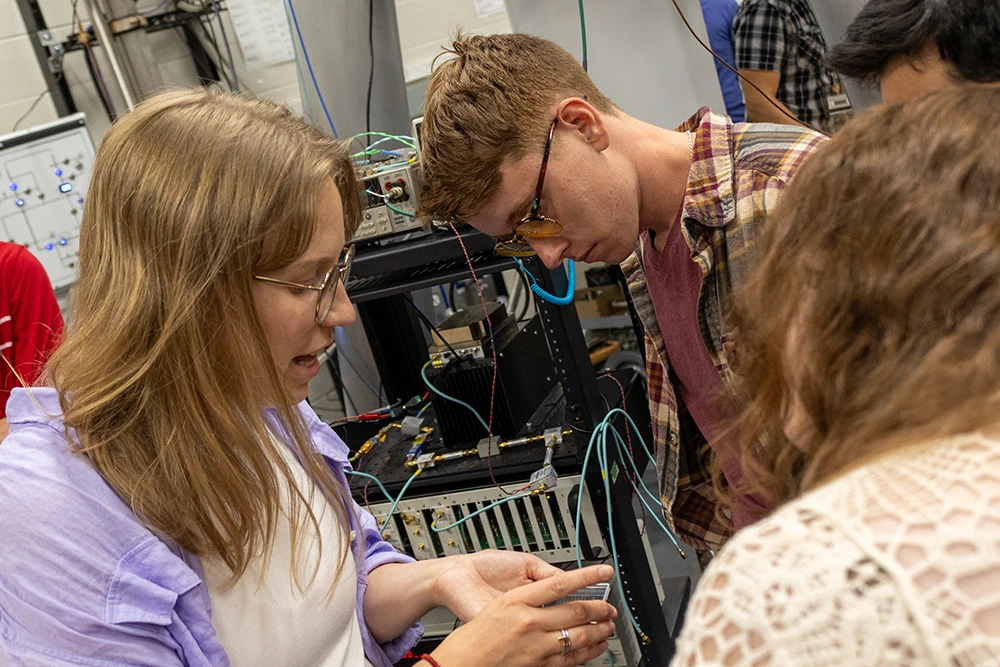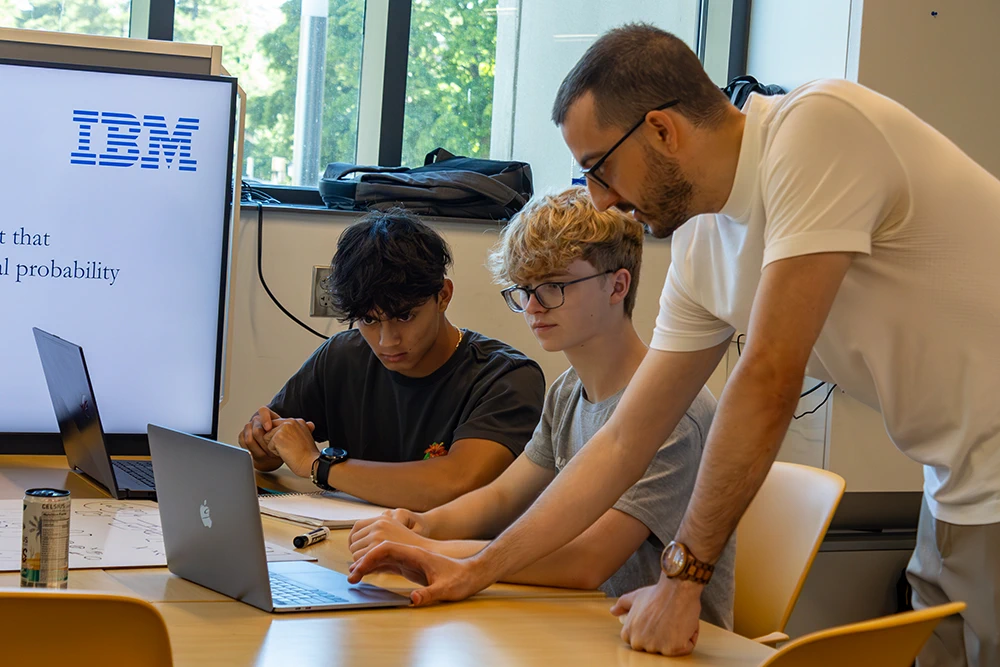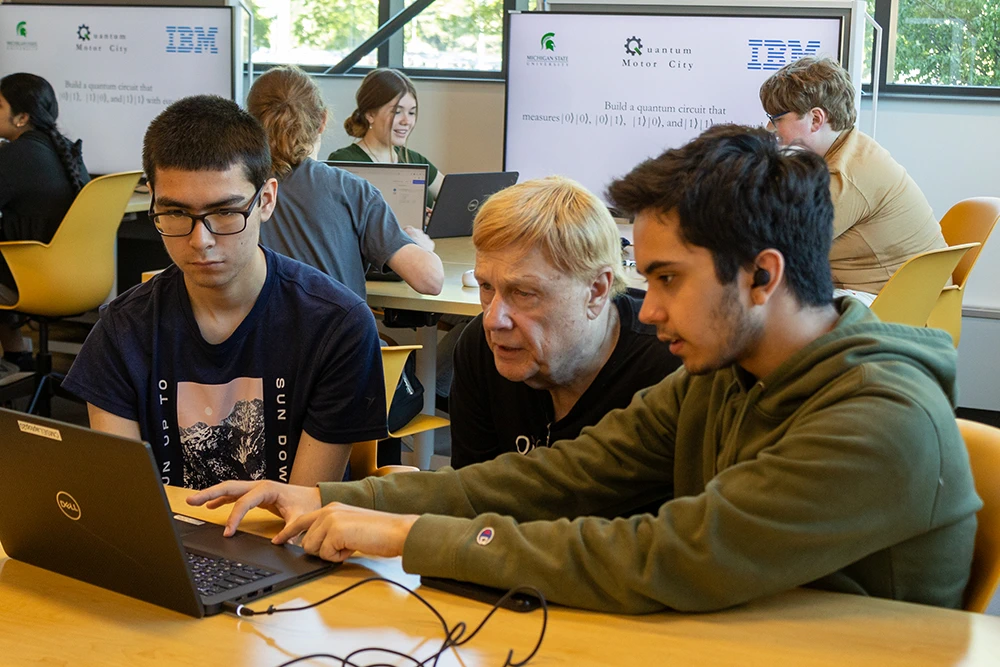The Michigan State University College of Engineering hosts various summer camps for K-12 students every year. A new one began its pilot run in 2024, the Quantum Motor City Camp.
It was run by Ryan LaRose, an assistant professor of computational mathematics, science and engineering, and electrical and computer engineering.
The free camp was designed for high school students from Detroit. It featured a look into quantum computing, an emerging technology at the interface of computer science, physics, and mathematics that can solve certain problems that are too complex for classical computers.
During the three-day camp, participants resided in an MSU residence hall, toured the MSU campus and learned the basics of quantum computing by programming IBM quantum computers. James Weaver, a member of IBM’s Quantum Education Team, assisted the students in coding the computers.
On the last day of the camp, the group visited the MSU Laboratory for Hybrid Quantum Systems, run by Johannes Pollanen, to see the research the school is conducting on qubits, quantum computing chips, and the technology that is needed to support that research. After the tour, students participated in a Q&A session with Weaver and three students, Camryn Undershute, Ethan Egger, and Jeremiah Rowland.

The summer camp, part of the MSU Center for Quantum Computing, Science and Engineering, helped expand the footprint in the quantum computing and technology field.
“Students learned a lot of the key math and science for all STEM fields,” LaRose said. “Helping the students understand quantum computing gives them a base understanding of pretty much anything else in these fields and could help them narrow down what they want to pursue later in life.”
This story originally appeared on the College of Engineering website.

